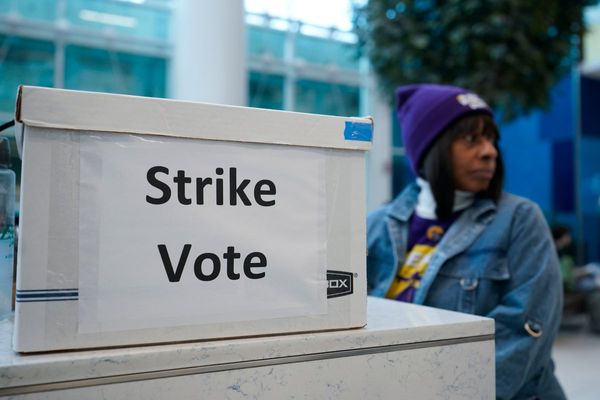Health Canada added another tool to its pandemic-fighting arsenal Monday, approving Pfizer's antiviral treatment for COVID-19 as the rapid spread of the Omicron variant continued to tax the country's health-care system and millions of students returned to in-person learning.
The agency authorized Paxlovid for adult patients with mild or moderate COVID-19 who are also at high risk of becoming more seriously ill. Health Canada did not authorize it for use on teenagers or on patients who are already hospitalized because of COVID-19.
Hospitalizations continued to rise Monday as Ontario reported 578 COVID-19 patients in intensive care units and 3,887 in hospital overall, up from 3,595 a day before. Quebec, meanwhile, reported 3,381 hospitalized COVID-19 patients, including 286 in ICU.
Dr. Supriya Sharma, chief medical adviser with Health Canada, said authorization comes at a "crucial time in the pandemic as we're faced with new variants."
The drug could help alleviate pressure on health-care systems by decreasing the number of high-risk people who would require hospitalization, but health officials noted on a conference call Monday that supply would be an issue early on.
Dr. Theresa Tam, Canada's chief medical officer, said Paxlovid's impact likely won't be seen right away.
"A lot of it depends on the initial supply and we all know that the supply isn't going to be great at the start," she said. "For the Omicron wave itself, it may contribute, but it won't be a key contributor to the current wave.
"So it is very much another layer, another tool as we progress over the next month."
Federal Health Minister Jean-Yves Duclos said Canada has already received its first shipment of 30,000 treatment courses of the Pfizer drug, with another 120,000 expected through March. He added that distribution to provinces and territories will begin "immediately."
News of Paxlovid's authorization came as Canadian students in four provinces returned to in-person learning, though a heavy winter snowstorm in parts of Ontario and Quebec meant another virtual school day for many.
Students in Nova Scotia and Manitoba also returned to class after starting the new year online because of record-high case counts. The provinces switched to remote learning to take pressure off the health-care system and give schools more time to improve safety measures.
Some Manitoba high-school students staged a walkout Monday to protest their return amid rising COVID-19 numbers.
The students called for enhanced safety measures in classrooms, better access to masks and an option for online learning.
Manitoba reported 20 COVID-19-related deaths since Friday, with hospitalization numbers reaching a record 601, including 107 in ICU.
In Newfoundland and Labrador, meanwhile, officials are waiting at least another week to relax public health restrictions following a surge in COVID-19 that began in late December. The province moved to Alert Level 4 on Jan. 4 and will stay there until at least Jan. 24.
Newfoundland and Labrador reported 15 hospitalized COVID-19 patients on Monday, one shy of its pandemic record of 16 set on Oct. 17.
In Ottawa, Procurement Minister Filomena Tassi said Monday that obtaining Paxlovid will help keep Canada's hospitalization figures from continuing to creep upwards.
"I think the timing of this (authorization) is also very important," she said. "The bottom line is ... it keeps people potentially out of the hospitals."
The prescription medication is meant to be taken at home within five days of the start of symptoms, timing that could prove difficult as Canada deals with a limited capacity for PCR testing.
Tam said rapid tests could also be used to determine who might receive Paxlovid.
"You can try and get the PCR test but if it's simply not available or not available fast enough, the rapid antigen test may be used," she said. "That's just a very practical approach."
Tam said provinces and territories will determine how best to use limited supply of the drug, adding that deployment to jurisdictions will be based on a per-capita basis.
She said priority for Paxlovid will be given to those who are moderately to severely immunocompromised and don't mount enough protection against COVID-19 with vaccines; people over the age of 80 whose vaccines are not up to date; and those 60 years and older living in rural or underserved communities including First Nation, Inuit and Métis individuals whose vaccinations are not up to date.
Unvaccinated people also remain at higher risk for severe disease. But Duclos said they shouldn't view Paxlovid as a substitute for vaccination.
"A drug is a treatment," he said. "It's much better not to have to be treated and the best way not to have to be treated is to be vaccinated."
The Pfizer pill uses a combination of two antiviral drugs to prevent the virus that causes COVID-19 from replicating once it has infected a patient.
Sharma said clinical trials showed treatment with Paxlovid reduced the risk of hospitalization and death caused by COVID-19 by 89 per cent when the medications were started within three days of the beginning of symptoms, and by 85 per cent when started within five days.
Meanwhile, the National Advisory Committee on Immunization has updated its guidance on vaccination following myocarditis.
The agency says those who either had no cardiac workup or had normal cardiac investigations can receive the next dose of their vaccine once they are symptom free and at least 90 days has passed since vaccination.
This report by The Canadian Press was first published Jan. 17, 2022.
Melissa Couto Zuber, The Canadian Press







